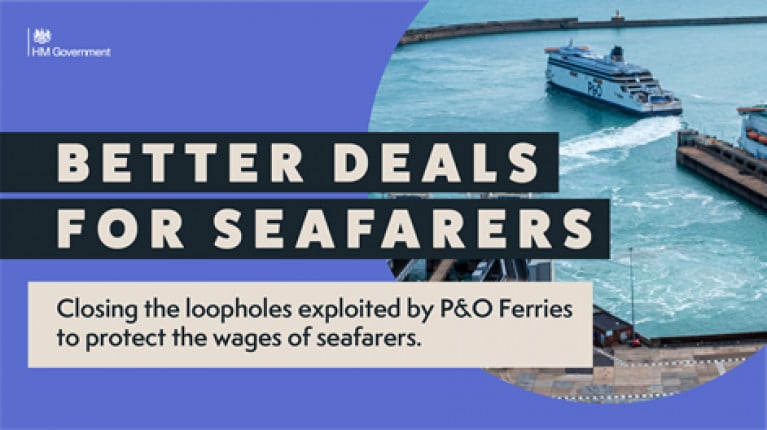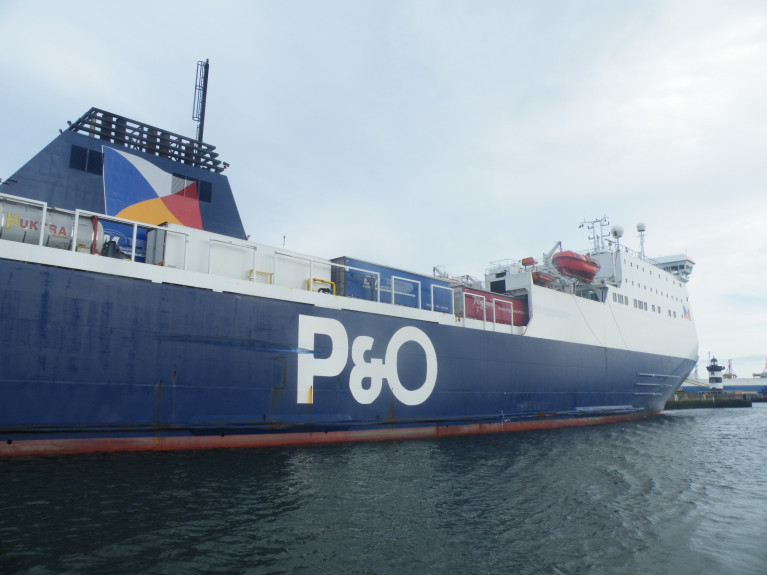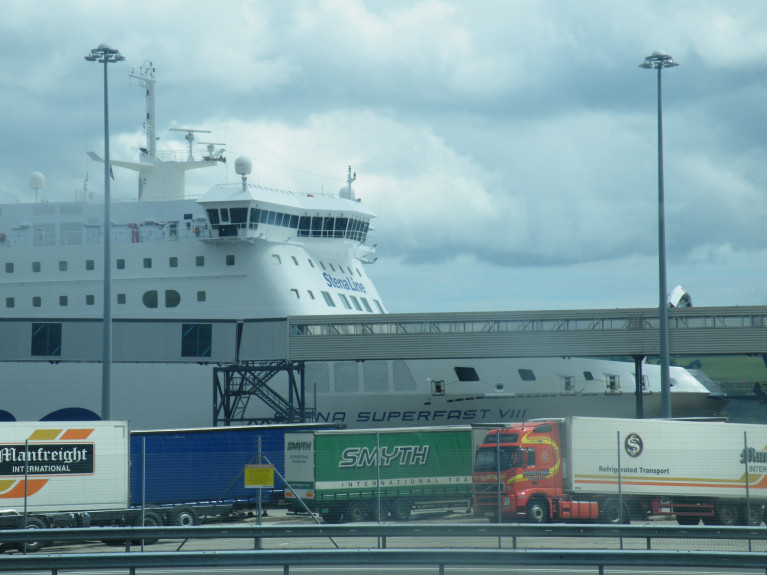Displaying items by tag: P&O dispute
Seafarers' UK National Minimum Wage Laws Set Sail
Seafarers numbering in tens of thousands must be paid an equivalent to the UK National Minimum Wage in a major step forward on pay protection, confirmed the British Government today (10 May).
Following P&O Ferries’ decision to sack 800 workers, the Government is introducing pay protection reforms requiring ferry operators who regularly call at UK ports to pay their workers the equivalent of the UK National Minimum Wage.
The new legislation will ban ferries that don’t pay their workers the equivalent to minimum wage from docking at UK ports.
- Ferries regularly sailing in and out of UK ports to pay an equivalent to UK National Minimum Wage
- UK leads global agenda to secure Minimum Wage Corridors with key European countries
- Second phase of Transport Secretary’s nine-point plan on seafarer pay protection begins
Announced in the Queen’s Speech, the Government will implement the changes in the next parliamentary session and will consult closely with the ports and maritime sector on the new laws.
In addition to The Harbours (Seafarers' Remuneration) Bill on securing an equivalent to UK National Minimum Wage for seafarers regularly entering UK ports, the Government is continuing positive bilateral discussions with France, the Netherlands, Spain, Germany, Ireland and Denmark. This is to ensure routes between the countries become ‘Minimum Wage Corridors’, where seafarers on routes between either country must be paid at least the equivalent of the minimum wage.
Transport secretary Grant Shapps said: “We will stop at nothing to make sure seafarers in UK ports are being paid fairly. P&O Ferries’ disgraceful actions do not represent the principles of our world-leading maritime sector, and changing the law on seafarer pay protection is a clear signal to everyone that we will not tolerate economic abuse of workers.
“We will protect all seafarers regularly sailing in and out of UK ports and ensure they are not priced out of a job. Ferry operators which regularly call at UK ports will face consequences if they do not pay their workers fairly.”
The consultation on the proposed measures (through the Dept of Transport) opened today (10 May) and will last four weeks. It will examine what sort of vessels could be included beyond ferries, and what the enforcement measures will be. Options under consideration include surcharges, suspension of port access and fines.
Business minister Paul Scully said: “In contrast to P&O Ferries, who have shown utter contempt for their workforce, this government is firmly committed to ensuring that a fair day’s work gets a fair day’s pay.
“By ensuring that seafarers working on ships which regularly call at UK ports are paid an equivalent to the minimum wage, today’s plans will be a boost for thousands of hard-working staff, while shielding them from any future exploitative actions by rogue businesses.”
The new laws means that all ferry operators who regularly call at UK ports will be legally obliged to pay an equivalent to the UK National Minimum Wage in order to access those ports, closing a legal loophole between UK and International Maritime Law that P&O Ferries ruthlessly exploited.
In pursuit of a fairer deal for seafarers, this year the Government will hold an international summit on seafarers’ rights to improve conditions for seafarers’ around the world.
Ferry Firm P&O Says It Can't Rehire 800 Fired Seafarer Workers
Operator P&O Ferries said today it was unable to meet the UK government's request to rehire around 800 workers it fired earlier this month without notice in favour of cheaper staff, saying doing so would lead it to face financial collapse.
The UK government has urged P&O to reconsider its action and has said it will force ferry operators docking in its ports to pay the minimum wage.
"The circumstances which led P&O Ferries to make the decision in the first place still apply," P&O Ferries Chief Executive Peter Hebblethwaite said in a letter to Transport Minister Grant Shapps.
More from RTE News here on the continuing ferry dispute that began almost three weeks ago.
Extra Sailings Added On Stena Line's Northern Ireland-Scotland Service While P&O Route Remains Suspended
Operator Stena Line which has a ferry route on the North Channel, has said it will put on extra services between Northern Ireland and Scotland from Tuesday, reports the Belfast Telegraph.
The UK’s Transport Secretary Grant Shapps confirmed the news in the House of Commons (see related story), stating the company had “stepped up” after P&O routes were suspended last week and that it would ease pressure on major supermarkets like Asda and Marks & Spencer.
There was widespread outrage last week after P&O made the sudden announcement that 800 crew workers had lost their jobs without warning.
It’s understood up to 50 workers from Northern Ireland alone are affected.
The BBC report that Mr Shapps confirmed that if it is found P&O flouted employment law by failing to give adequate notice or consultation then it would be “a matter for criminal prosecution and unlimited fines”.
Northern Ireland’s Economy Minister has also accused P&O of “ripping up the employment rule book”.
P&O has said the company was forced to take immediate action to safeguard the future viability of the business and that affected staff would be receiving enhanced redundancy packages.
Further coverage from the newspaper here.































































